Australia and New Zealand will pause Tuesday to mark ANZAC Day, a time to remember all those who made the supreme sacrifice in time of war while saluting the veterans of today.
The solemn event commemorates the pre-dawn beach landing of the Australian and New Zealand Army Corps (ANZAC) on Turkey’s Gallipoli peninsula on April 25, 1915, at the start of an eight-month push against the Ottoman Empire.
It was the opening salvo for both countries in World War I.
The unsuccessful British-led campaign aimed to secure a naval route from the Mediterranean Sea to Istanbul through the Dardanelles, and knock the German-backed Ottomans out of the war.
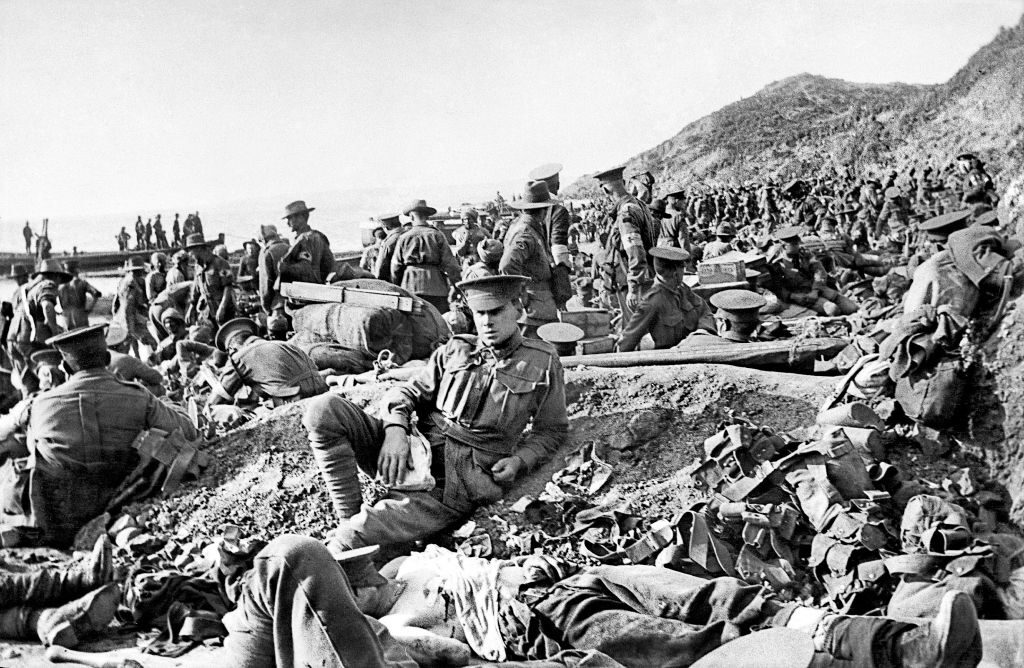
An Australian soldier lies wounded in the foreground as hundreds of others move among the dead and wounded on the beach at Anzac Cove on the first day of the Gallipoli landing. Many soldiers wear red cross arm bands and are tending to the wounded. (Philip Schuller/The AGE/Fairfax Media via Getty)
It was a total disaster.
Some 8,700 Australians and nearly 2,800 New Zealanders lost their lives but its legacy lives on because the trans-Tasman neighbours decided that sacrifice should be honoured.
Every year since Aussies and Kiwis are given a public holiday and hold marches, church services, parades, and solemn tributes to those forces in 1915 and all the others since who have paid with their lives in countless other wars and armed conflicts across the globe.
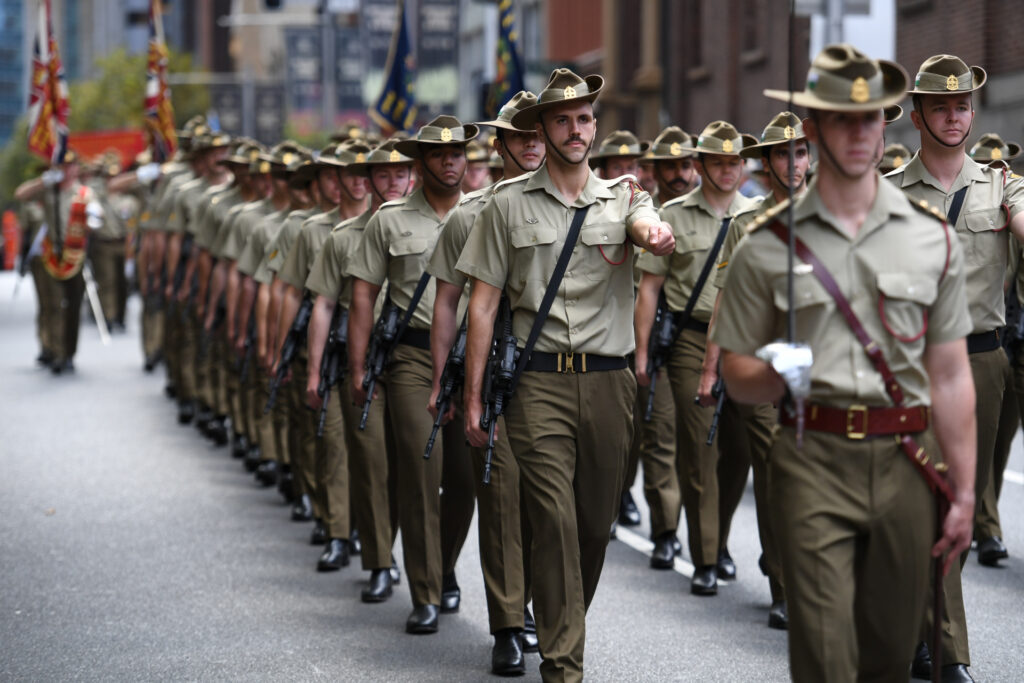
People participate in the ANZAC Day March in Sydney, Australia, on Tuesday, April 25, 2023. (Steven Saphore/Anadolu Agency via Getty Images)
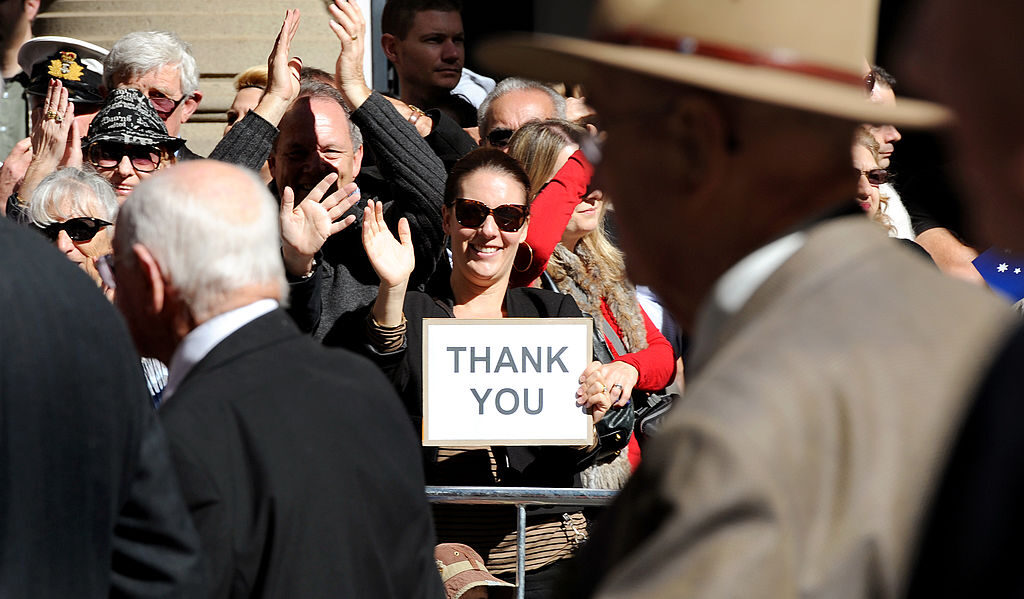
File/Crowds support veterans who march through Sydney streets as tens of thousands of Australians and New Zealanders gathered on April 25, 2012 to honour their war dead, attending sombre dawn services and veterans parades in memory of those who fought in war. (WILLIAM WEST/AFP via Getty)
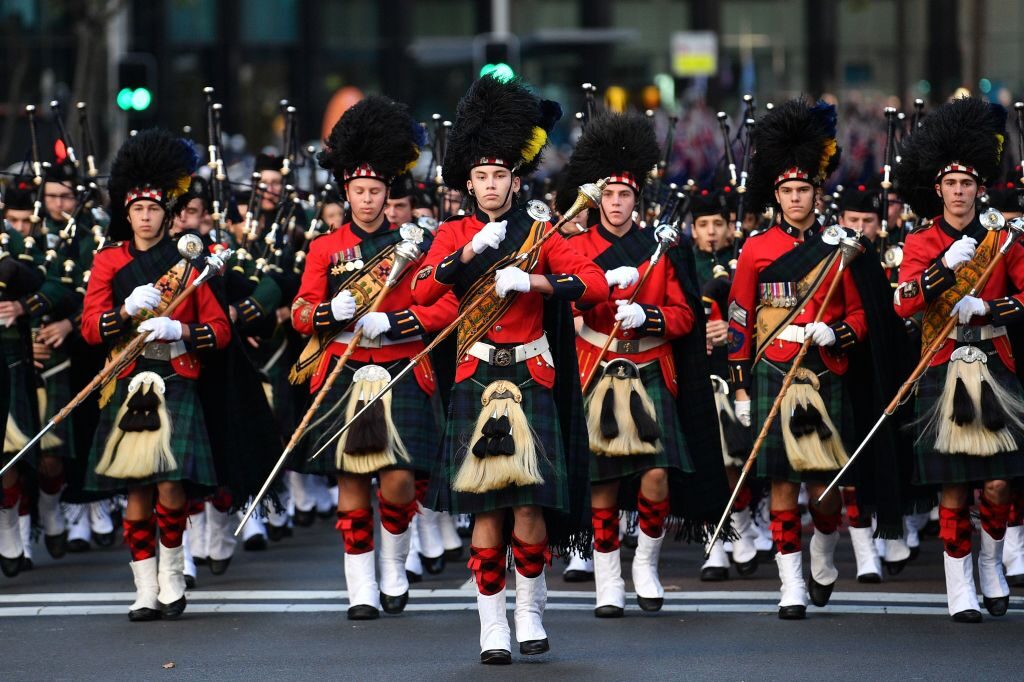
File/Members of the Pipes and Drums from The Scots College, Sydney, lead the annual march through Australia’s biggest city on ANZAC Day ( SAEED KHAN/AFP via Getty)
The commemorations now extend to honour every conflict the countries have joined in the ensuing decades, including wars in Korea, Vietnam, Iraq, and Afghanistan as well as multiple peace keeping operations from East Timor and Somalia to Cambodia.
The ANZAC dawn service starts the day.
It has its origins in a military practice known as “stand-to”, in which soldiers are woken before dawn to avoid the vulnerability that comes with the early light, which is notorious for playing tricks on the eyes.
A dawn service was first held on the Western Front by an Australian battalion on the first anniversary of the Gallipoli landing on 25 April 1916.
Historians agree that in Australia dawn services spontaneously popped up around the country to commemorate the fallen at Gallipoli soon after.
In later years the tradition developed of a march of veterans from all wars who are applauded as they traverse cities and country towns to the sound of massed bands and cheering supporters.
“On this particular day we honour those who fought for our liberty and freedom,” former Prime Minister Scott Morrison said last year as the sun rose over the Northern Territory capital of Darwin at the top end of Australia.
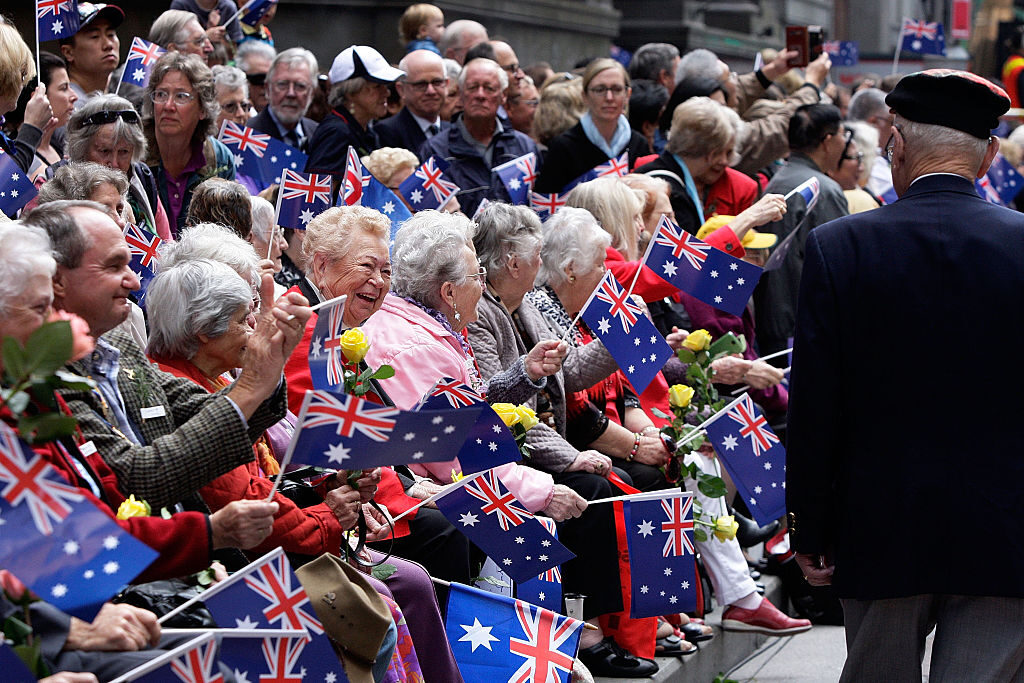
Legacy War Widows cheer and wave roses as servicemen and women march along George Street during the Anzac Day Parade on April 25, 2015 in Sydney, Australia. (Lisa Maree Williams/Getty Images)
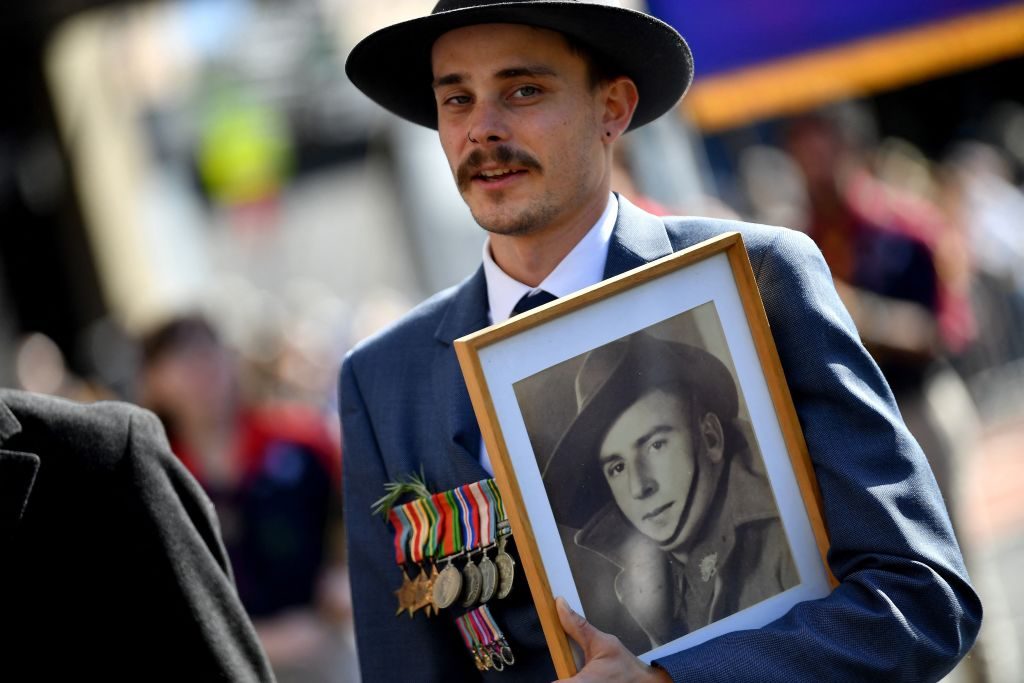
A man carries a photo of an Australian soldier in the annual ANZAC Day parade in Sydney on April 25, 2022. ( SAEED KHAN/AFP via Getty Images)
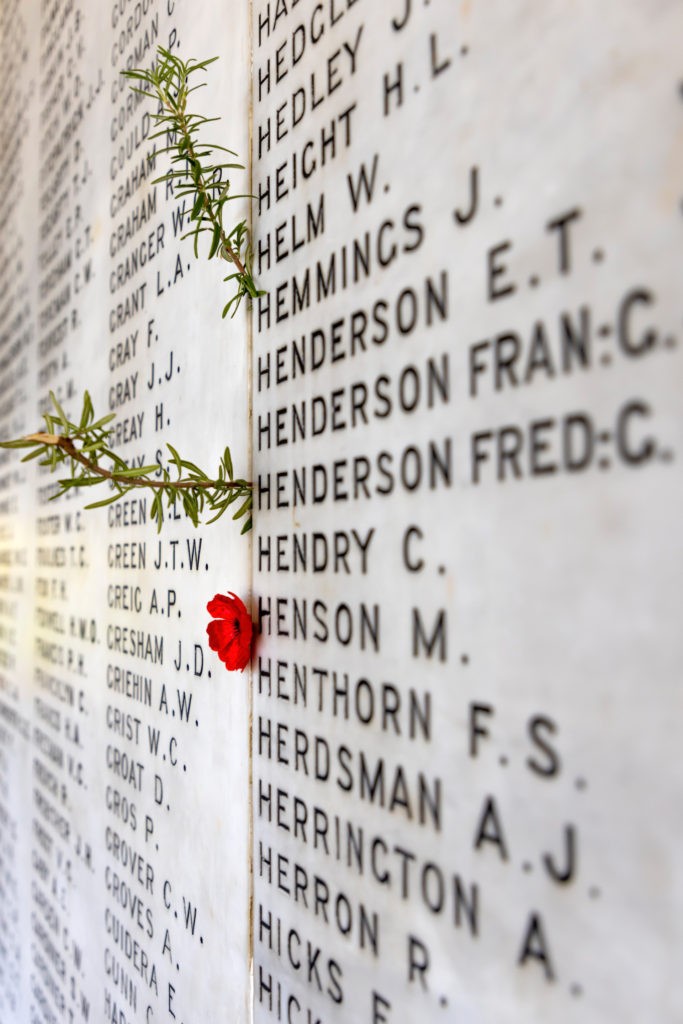
A red poppy and sprigs of rosemary are seen alongside names on The Roll of Honour at the State War Memorial at Kings Park on April 24, 2021 in Perth, Australia. (Paul Kane/Getty Images)
“Coercion travels our region once more,” he added, in a nod to China’s growing political and military sway in the Indo/Pacific region.
The day traditionally ends with meetings in pubs and restaurants, backyards and public places, where those veterans who marched can take their rest and those who watched can add their thanks.
Lest we forget.
COMMENTS
Please let us know if you're having issues with commenting.